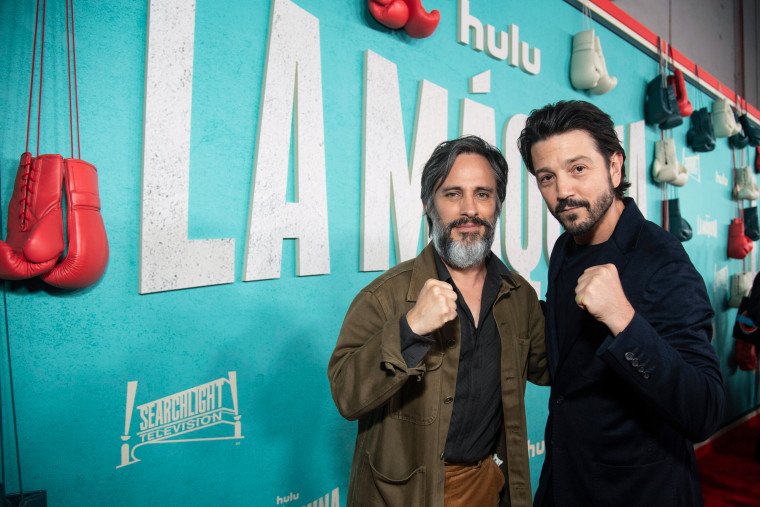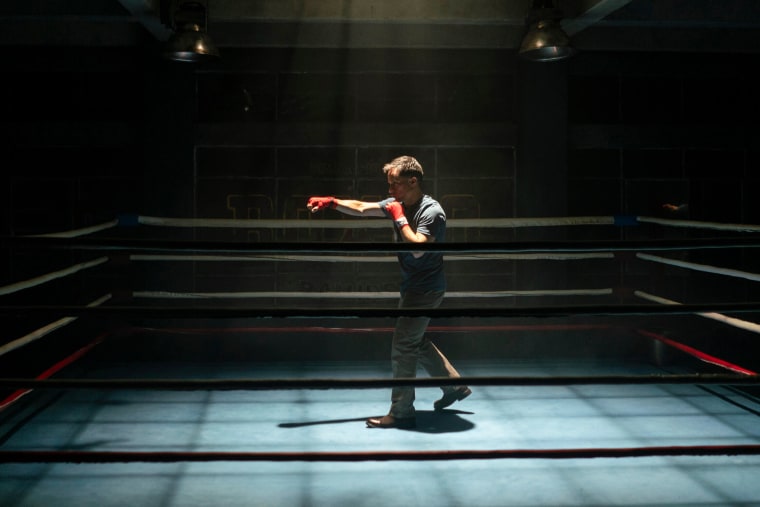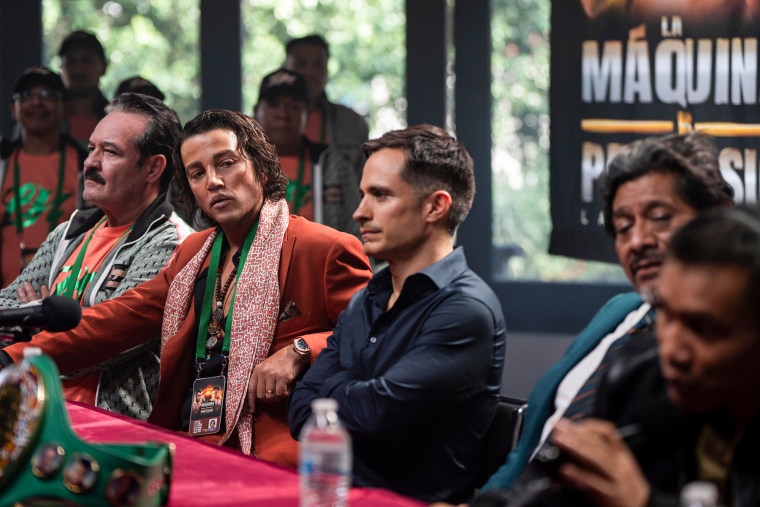Boxers have to learn how to outfight, outscore and outlast their opponents in the ring.
But Mexican actor Gael García Bernal, who co-stars in “La Máquina”— Hulu’s first original Spanish-language project — with childhood friend and fellow actor Diego Luna, says that he wanted to tell a story about the lessons that a champion has to face when getting out of boxing.
“It happens to all champions. There’s a point when they all have to say goodbye from that success,” García Bernal told NBC News in a video interview. “And it’s a very difficult thing to do.”

“La Máquina,” which translates to “The Machine,” will be released Wednesday as a six-episode limited series. It tells the story of veteran boxer Esteban Osuna (García Bernal) and his manager, Andy Luján (Luna), as they make a comeback after a devastating defeat.
It pairs the acclaimed Mexican actors and longtime friends who audiences saw together in the 2001 award-winning movie, "Y Tu Mamá También."
“One falls only to rise again,” Luján says in the first episode. “Mexico’s history is full of blows, falls and blood. Esteban Osuna tells that story better than anyone.”
The manager knows that champions can’t live off past glories. So he sets out to get them back on top by winning a rematch. But that victory will be undercut by threats from a criminal organization.
Luna described boxing as a sport in which many Mexicans have been champions.

“It is one of the sports we’re best at,” he said. “We grew up watching, for example, Julio César Chávez, who used to unite the country. Everything stopped when he fought. And the story of La Máquina, it’s a little bit like Julio Cesar’s. It is that person. It is the person who was known in the whole country.”
“La Máquina” delivers a certain level of authenticity for native Spanish speakers. Osuna asks for a fresquito tamarind drink before a fight, and later he and Luján sing the Spanish language version of the 1981 hit song “Será Porque Te Amo” (“It Must Be Because I Love You”), among other cultural references.
Mexico, though, isn't a monolithic culture, Luna said.
“There are so many Mexicos,” he said in a video interview. “The beauty of the show is that it talks about that complexity and diversity you find in a country like Mexico, that is impossible to see in just one story, and those different layers of society that suddenly boxing kind of gets together.”
Aside from García Bernal and Luna, many Latino viewers will also recognize legendary Mexican telenovela star and singer Lucía Méndez, who plays Luján’s mother, Josefina.
“She is a woman who definitely wants to dominate everything around her,” Méndez said in Spanish during a video interview. “She has power, she has money, she has presence, she has everything. But one thing she doesn’t really have is the affection of people.”

On camera, Méndez has played many different types of characters in more than half a century. Off camera, she shares a passion for boxing with Josefina.
“I admire Canelo [Álvarez] a lot. I think he is definitely a wonderful boxer,” she said. “I think there is a huge, huge passion for boxing all over Latin America and the whole world.”
As the story of Osuna and Luján plays inside and outside of the ring, viewers will get a sense that boxing can represent something bigger than a sport.
“This isn’t a fight, it’s a little play,” says Cuban actor Jorge Perugorría, who plays Osuna’s coach Sixto in the first episode. “Because each boxer, like it or not, brings a story and plays a role.”